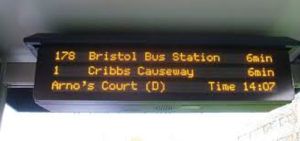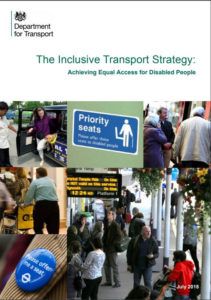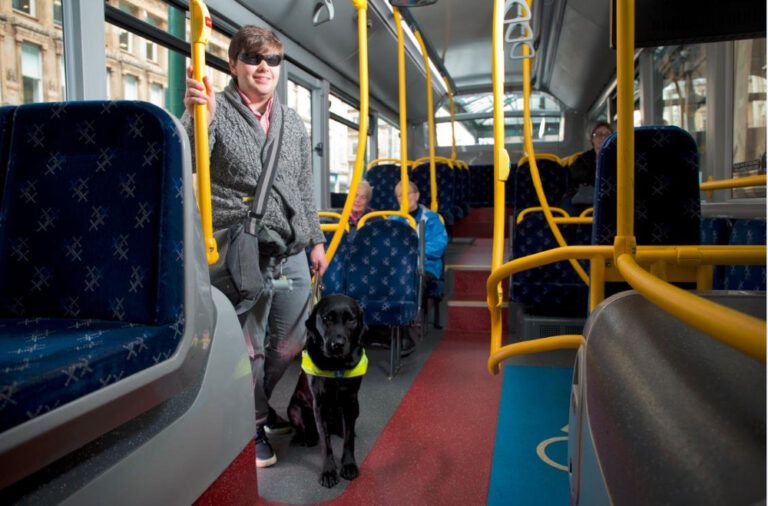A new partnership between the UK Department for Transport (DfT) and the Real Time Information Group (RTIG) is aiming to make the country’s buses more accessible for passengers with disabilities, including those with visual or hearing impairment.
With a wide membership drawn from local authorities, bus and rail operators and system suppliers, the RTIG supports good practice in the use of communications technology on public transport, and will work with the DfT to allocate £2m (US$2.5m) of funding to small bus operators for audible and visual on-board information. With around 50% of UK public transport journeys made on buses, the new funding will help to ensure that passengers can board more buses with greater confidence, knowing where they are and when to get off. The announcement coincides with the launch of the DfT’s ‘It’s everyone’s journey’ communications campaign, the first stage of a new government-backed initiative to highlight the part that everyone can play in improving disabled people’s experiences when using public transport.
The DfT is now calling on charities, transport operators, and commercial organizations to join the campaign, helping to raise awareness of the needs of disabled travelers and share some of the improvements being made to make travel easier for the one in five disabled people in the UK. The fund for the provision of audio and visual information on-board buses was announced as part of the government’s Inclusive Transport Strategy that aims to provide equal access to the country’s transport network by 2030. Operators of local bus services are likely to be required to have audio and visual information systems in their vehicles, and the new funding is intended to help small operators that might find this costly to implement. With audio visual equipment only available in limited areas, and predominantly provided by larger operators, the DfT expects this funding to benefit up to 30 small bus operators.
 “Transport is at the heart of how we live our lives, and I am determined that we remove any barriers faced by disabled people,” said UK Accessibility Minister, Nusrat Ghani. “Every passenger, regardless of where they travel in Great Britain, should be able to do so confident that they have boarded the correct vehicle and are travelling to the right place. That’s why it’s fantastic to announce this partnership with the Real Time Information Group today, and I hope this funding will help more buses meet the needs of the people who rely on them every day.”
“Transport is at the heart of how we live our lives, and I am determined that we remove any barriers faced by disabled people,” said UK Accessibility Minister, Nusrat Ghani. “Every passenger, regardless of where they travel in Great Britain, should be able to do so confident that they have boarded the correct vehicle and are travelling to the right place. That’s why it’s fantastic to announce this partnership with the Real Time Information Group today, and I hope this funding will help more buses meet the needs of the people who rely on them every day.”
UK Transport Secretary, Grant Shapps, added, “It is unacceptable that people still feel they cannot travel by bus, because of a lack of basic route and destination information on board local bus services. This partnership is the next step in ensuring that passengers have the information they need to travel confidently on local bus services throughout Britain.”
Tim Rivett, general manager of the Real Time Information Group, said, said, “Audio visual information helps reduce barriers to travel and increases confidence in public transport for all passengers, but particularly disabled passengers. We are looking forward to working with the department to help small operators roll out audio visual information and provide the customer benefits more quickly than would otherwise happen.”





